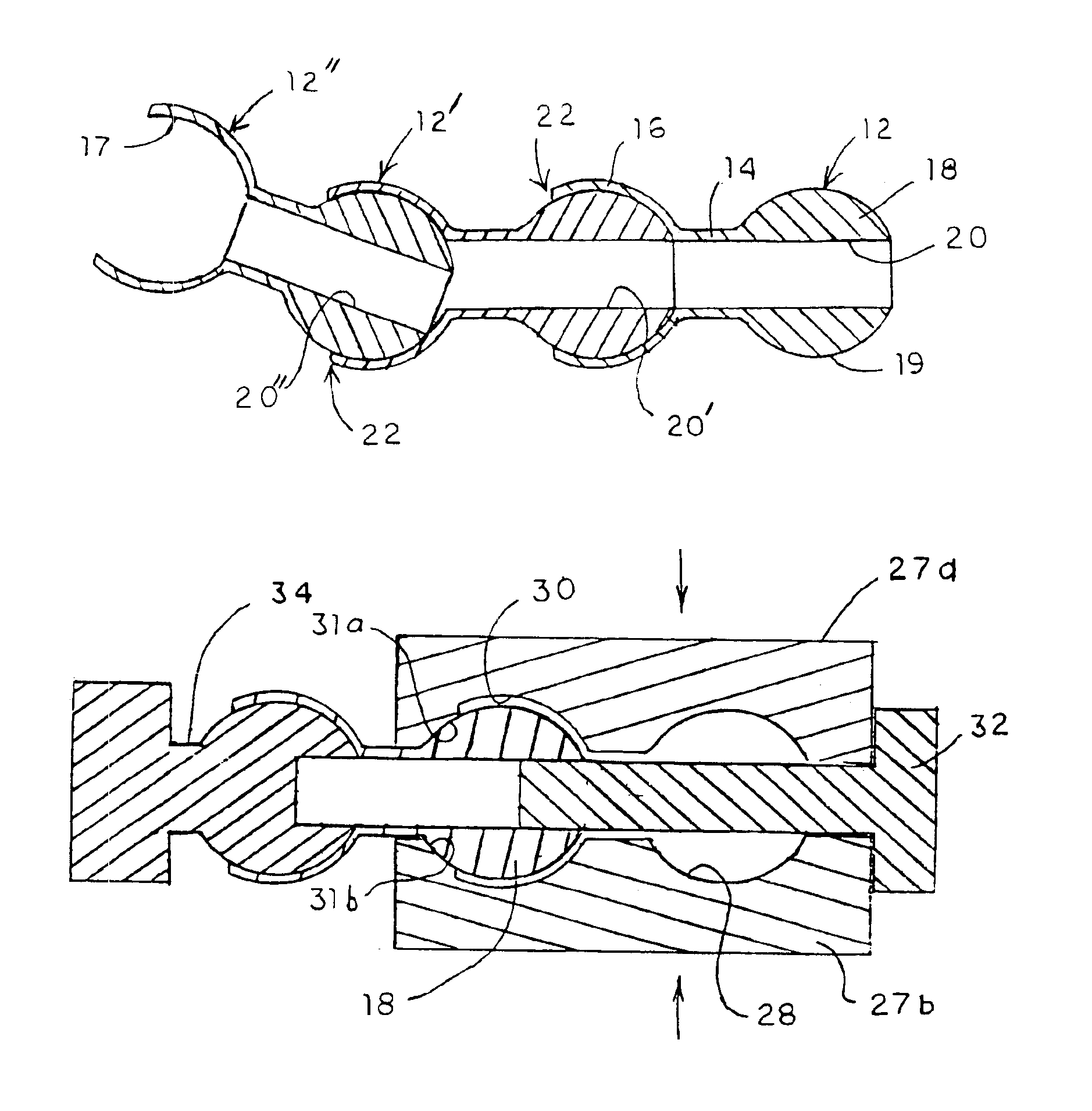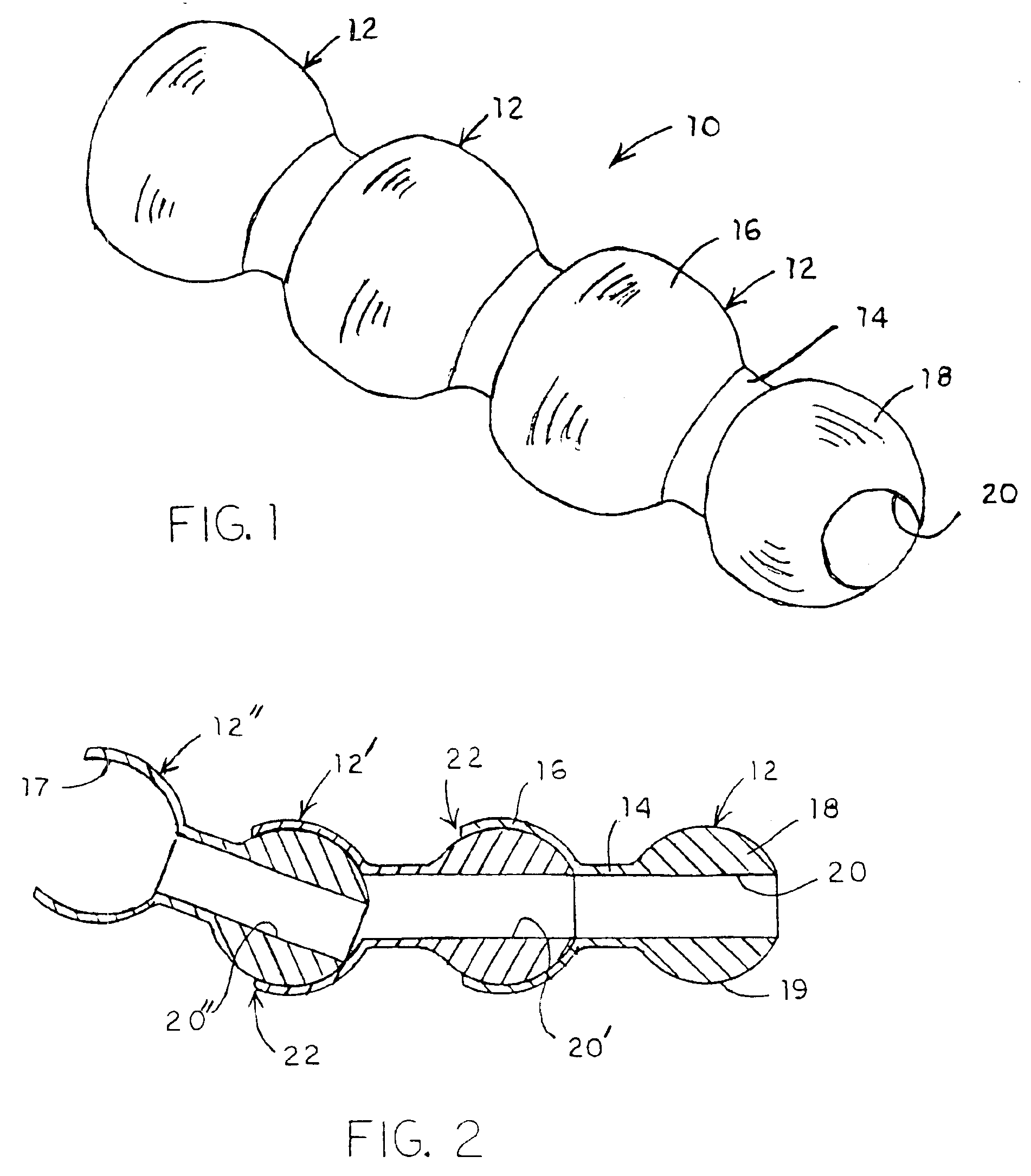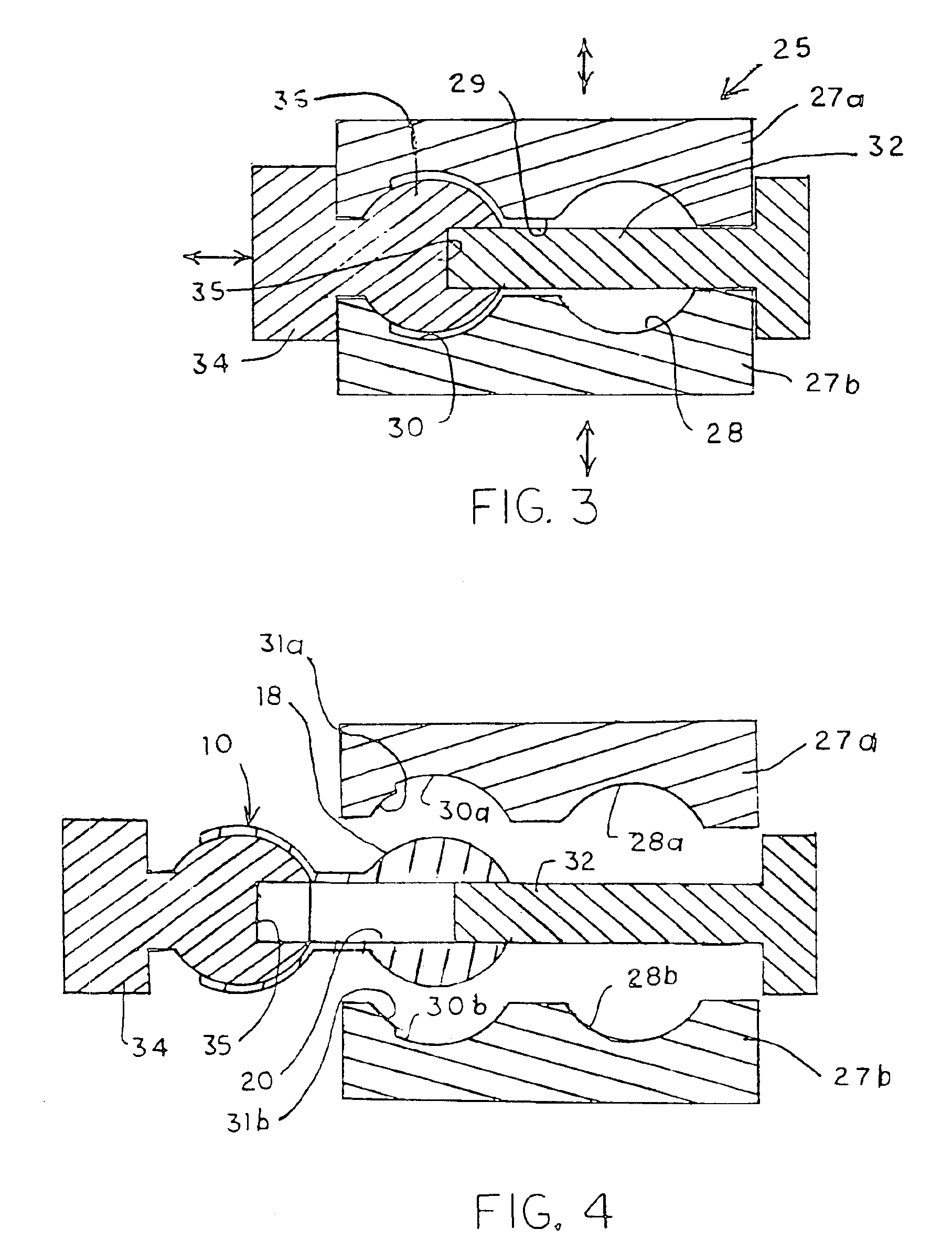Fluid conduits and method of manufacturing same
a technology of fluid conduits and conduits, which is applied in the direction of hose connections, non-disconnectible pipe joints, other domestic articles, etc., can solve the problems of inability to meet the requirements of the articulating joint, the articulating joint is not fluid-tight, and the prior ball-and-socket snap-fit devices are usually limited, so as to reduce the likelihood or even the ability
- Summary
- Abstract
- Description
- Claims
- Application Information
AI Technical Summary
Benefits of technology
Problems solved by technology
Method used
Image
Examples
Embodiment Construction
For the purposes of promoting an understanding of the principles of the invention, reference will now be made to the embodiments illustrated in the drawings and described in the following written specification. It is understood that no limitation to the scope of the invention is thereby intended. It is further understood that the present invention includes any alterations and modifications to the illustrated embodiments and includes further applications of the principles of the invention as would normally occur to one skilled in the art to which this invention pertains.
In accordance with one aspect of the invention, a continuous flexible conduit 10 includes a series of like-configured components or links 12, as shown in FIG. 1. For the purposes of the present disclosure, the conduit 10 is provided as a fluid conduit capable of conveying a pressurized fluid. Of course, it will be readily appreciated that this inventive flexible conduit can be utilized in a wide variety of application...
PUM
| Property | Measurement | Unit |
|---|---|---|
| angle | aaaaa | aaaaa |
| flexible | aaaaa | aaaaa |
| diameter | aaaaa | aaaaa |
Abstract
Description
Claims
Application Information
 Login to View More
Login to View More - R&D
- Intellectual Property
- Life Sciences
- Materials
- Tech Scout
- Unparalleled Data Quality
- Higher Quality Content
- 60% Fewer Hallucinations
Browse by: Latest US Patents, China's latest patents, Technical Efficacy Thesaurus, Application Domain, Technology Topic, Popular Technical Reports.
© 2025 PatSnap. All rights reserved.Legal|Privacy policy|Modern Slavery Act Transparency Statement|Sitemap|About US| Contact US: help@patsnap.com



